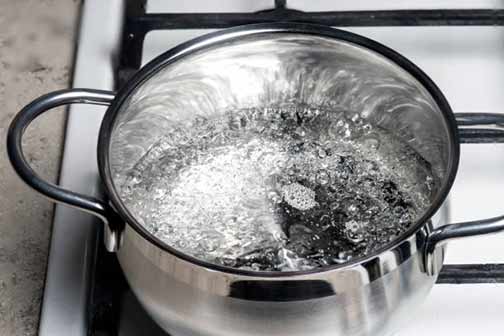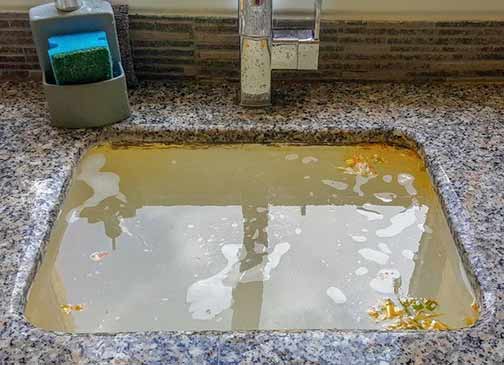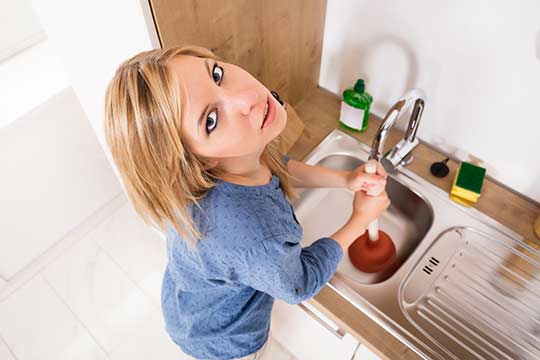Dealing with a drain backup situation can be a frustrating and messy experience. It’s important to act swiftly and safely to minimize further damage while waiting for professional help to arrive. This article provides practical tips and steps to help you manage a drain backup situation effectively.
Understanding the Cause
Before taking any action, it’s crucial to understand the cause of the drain backup. Common reasons include clogged pipes, tree roots intrusion, or a malfunctioning sewer system. By identifying the root cause, you can take appropriate measures to prevent future instances.
Ensure Your Safety
When dealing with a drain backup, your safety should always be the top priority. Here are some important safety considerations:
- Turn off the power: If the backup is located in an area with electrical outlets or appliances, turn off the power to reduce the risk of electric shock.
- Wear protective gear: Put on gloves, boots, and eyewear to protect yourself from any harmful bacteria or chemicals that may be present in the backup.
- Keep children and pets away: Ensure that children and pets are kept a safe distance away from the affected area.
Contain the Backup
While waiting for professional help, it’s important to contain the backup to prevent further damage to your property. Here’s what you can do:
- Block off the affected area: Use towels, plastic sheets, or any available barriers to contain the backup and avoid it spreading to other areas.
- Remove excess water: If there is standing water, use a wet vacuum or bucket to remove as much water as possible. Avoid using a regular vacuum cleaner as it may get damaged.
- Seal off drains: Cover all drains in the affected area with plastic bags and secure them tightly to prevent any unpleasant odors or sewage from escaping.
Minimize Water Usage
To prevent further strain on the drainage system and exacerbating the backup, it’s essential to minimize water usage during this time. Here are some tips:
- Avoid flushing toilets: Only use the toilet if absolutely necessary, and dispose of any waste in a separate bag.
- Limit showers and baths: Take quick showers or consider using alternative facilities if available.
- Avoid using the sink: Minimize the use of sinks for washing dishes or other tasks that require water.

Carefully pour boiling water down the drain to break up grease or soap buildup. Be cautious not to use this method on PVC pipes as it may cause damage.
DIY Drain Unclogging Techniques
If you’re confident in your abilities and want to attempt to unclog the drain yourself, here are a few techniques you can try:
- Plunger: Use a plunger to create suction and dislodge any blockages. Make sure to cover the overflow drain if applicable.
- Boiling water: Carefully pour boiling water down the drain to break up grease or soap buildup. Be cautious not to use this method on PVC pipes as it may cause damage.
- Baking soda and vinegar: Mix equal parts of baking soda and vinegar and pour it down the drain. Let it sit for a few hours before flushing it with hot water.
Communicate with Professionals
While waiting for professional help to arrive, it’s important to maintain clear communication with the plumbing company. Follow these steps:
- Contact reliable professionals: Research and contact reputable plumbing companies that offer emergency plumbing services to ensure prompt assistance.
- Provide accurate information: Clearly describe the situation, its severity, and any actions you’ve already taken to manage the backup.
- Ask for estimated arrival time: Request an estimated arrival time from the plumbing company to better plan your wait time.
- Follow their guidance: Listen carefully to any instructions or precautions provided by the professionals and follow them accordingly.
Document the Situation
It’s important to document the drain backup situation for insurance purposes or any potential future reference. Here’s what you can do:
- Take photographs: Capture photographs of the affected areas, visible damages, and any belongings that may have been affected by the backup.
- Create a list of damages: Note down any damages or losses caused by the backup, including furniture, appliances, or personal items.
- Keep receipts: Keep track of any expenses incurred due to the drain backup, such as hiring plumbers or purchasing cleaning supplies.
Preventive Measures for the Future
Once the drain backup situation has been resolved, it’s important to take preventive measures to avoid future occurrences. Consider the following:
- Maintain regular drain cleaning: Schedule professional drain cleaning services at regular intervals to prevent build-up and potential blockages.
- Dispose of waste properly: Avoid flushing large items, grease, or non-biodegradable materials down the drain to minimize the risk of clogging.
- Install drain screens: Use drain screens or guards to catch hair, debris, and other potential clog causing substances.
- Plant trees away from pipes: If you have trees on your property, ensure they are planted away from any underground pipes to prevent root intrusion.
Dealing with a drain backup situation can be overwhelming, but by following the steps outlined in this article, you can safely manage the situation while waiting for professional help. Remember to prioritize your safety, contain the backup, minimize water usage, and communicate effectively with plumbers. By taking preventive measures, you can reduce the likelihood of future drain backups and maintain a healthy drainage system in your home.

